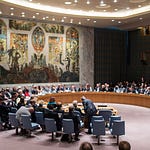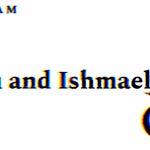The Republican Party is currently embroiled in a fierce ideological battle over the future of the H-1B visa program. On one side stand figures like Steve Bannon and Laura Loomer, whose populist critique of the program views it as a threat to American workers and culture. On the other side are proponents like Elon Musk and Vivek Ramaswamy, who champion H-1B visas as essential for sustaining American innovation. Yet, beneath the rhetoric lies a more nuanced reality that exposes the contradictions in both camps.
The H-1B Trap: Indentured Servitude or Invasion?
While the Loomers frame H-1B visa holders as invaders undermining American jobs and values, this narrative oversimplifies the issue. H-1B workers are not invaders; they are often highly skilled professionals coerced into a system of modern indentured servitude. Bound to their employers under the constant threat of deportation, these workers are exploited as cheap, compliant labor to the detriment of both native-born Americans and their own dignity, thier very ability to blow the whistle on “certain things”.
Elon Musk and his ilk may paint their advocacy for H-1B as enlightened, but it’s clear their primary interest lies in maintaining a steady supply of obedient laborers. Musk, who positions himself as a champion of meritocracy and innovation, benefits directly from a system that forces H-1B holders to obey their employers’ every whim. This dynamic has little to do with fairness or opportunity and everything to do with consolidating power and profit.
The Ramaswamy Paradox
Vivek Ramaswamy embodies the contradictions of the pro-H-1B camp. Despite his Indian heritage, his rise in GOP circles has been marred by his willingness to pander to nativist elements within the party. His infamous interaction with Ann Coulter, who bluntly told him she wouldn’t vote for him because he’s Indian, revealed his tendency to respond to criticism with either that said self-denigration or, now, a contempt for American culture.
This approach does him no favors. While I have great respect for many aspects of Indian culture, including its dharmic philosophical traditions though I’m a Christian, denigrating American values in an attempt to gain favor with xenophobic elements only serves to actually alienate potential allies. My own vote and political work for Email inventor Dr. Shiva Ayyadurai in the presidential race in 2024 was based on his commitment to principles like medical freedom and anti-Zionism, not his ethnicity.
Cultural Clashes and Historical Context
The cultural clashes exacerbated by large-scale migration are not unique to the United States. Countries like India have suffered under Western destabilization and exploitation, much like Latin America, which continues to grapple with the effects of U.S.-backed interventions. In this context, the H-1B program can be seen as another form of subjugation—albeit one with better optics and a veneer of opportunity.
This perspective offers a counterpoint to the simplistic narrative pushed by Nick Fuentes and his followers, who frame the issue as a battle against “tech bros” and global elites. While there is truth to the claim that H-1B undermines opportunities for American workers, it is also a system that exploits its beneficiaries. One aspect often overlooked in the immigration debate is the geopolitical shift represented by India’s growing alignment with BRICS and its implications for global power dynamics. Under Prime Minister Modi, India has been gradually distancing itself from its historically close ties with Israel, influenced by the bloc’s broader anti-hegemonist stance. This turn away from Netanyahu’s agenda aligns with the BRICS coalition's focus on multipolarity, challenging Western dominance. As an American, I view this as a significant and positive development that contrasts with the xenophobic narratives of figures like Nick Fuentes. While Fuentes dismisses Indian culture as incompatible with Western White culture, I recognize the value of India’s anti-Zionist pivot within BRICS as a counterweight to globalist exploitation. H-1B visas, in this context, can be seen as another form of Western subjugation of Indian talent—exploiting their labor while sidelining their national interests.
A Path Forward
To address the H-1B crisis, we must move beyond the false dichotomy of invasion versus meritocracy. This means advocating for labor reforms that protect both American workers and H-1B holders, breaking the cycle of exploitation that benefits only the wealthy and powerful. It also means acknowledging the cultural and historical factors that drive migration and seeking solutions that honor the dignity of all involved.
The GOP’s civil war over H-1B visas is a microcosm of larger debates about immigration, labor, and national identity. As Americans, we must resist the urge to reduce these issues to slogans and soundbites. Instead, we should strive for policies that uphold the values of justice, fairness, and human dignity—values that transcend party lines and cultural divides.











